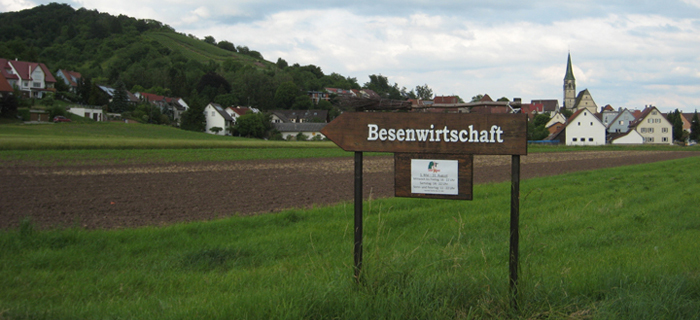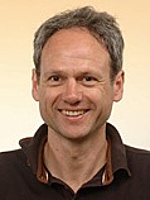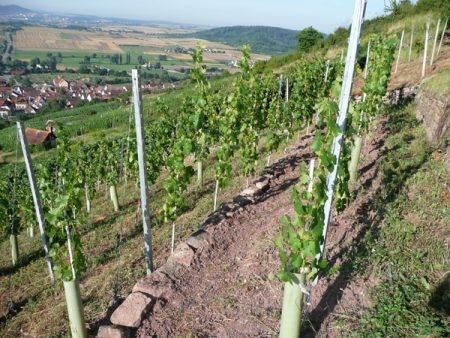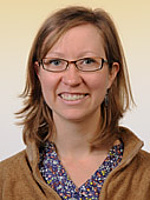
From water to wine

For most of us, our science is a passion, and we work nearly non-stop. A recent study of worldwide downloads from scientific journals reveals our habits: scientists are hard at work not only during the day, but also at night and on weekends. [1] So how do we balance our relentless devotion to our professional lives with passions outside of work? One option is to have hobbies that make use of your professional expertise.
Stefan Haderlein is an environmental chemist who holds a professorship at the University of Tübingen. Last month, I discovered he also moonlights as a vintner. He told me that his training as a water chemist is well-utilized in this endeavor, and allows him to optimize the wines that he makes, rather than simply following a recipe. Many of the concepts he deals with daily in teaching in research are applicable to wine-making: sedimentation, coagulation, fermentation of sugars and organic acids, and redox chemistry.
While non-work activities seem to cut into productivity, letting the brain run “in the background” can be useful strategy when at an impasse with work problems. Sometimes hobbies can be more directly productive: a friend of mine recently told me that she conceived and organized most of her written dissertation while on long bike rides training for races. In Stefan’s case, the tannins in wine, which contain redox-active quinone moieties, gave him the idea for a proposal he is currently working on to develop redox sensors.
Making wine is more than just a hobby for Stefan, but rather a family enterprise. His wife Sabine Koch cultivates the grapes on the steep, sunny hillside above the village where they live. Sabine’s education gives her an advantage here: she earned her PhD in soil science. Her knowledge of nutrient dynamics, soil quality and plant physiology has allowed them to grow the grapes organically. They were the first grape growers in the village to do so, and neighbors were not happy at first, because they feared fungus would not be controlled without fungicides and would spread to their grapes. Now, eight years later, several of the neighbors have converted to organic cultivation.
In the region of Germany where we live it is typical for wine-making families to open a temporary wine bar in their home, often just for a weekend. Sabine operates such a wine bar, called a Besen in German, in their home two weekends each summer. Besen means broom, but no one has been able to satisfactorily explain the etiology of this term applied to a wine bar to me. Nevertheless, a Besen is commonly marked by broom above the doorway. Sabine and Stefan call theirs Schneckenbesen, referring to the numerous snails that inhabit their plot of organic grapes.
A few of us from our geoscience institute headed out to taste the fruits of Stefan and Sabine’s labors one Sunday afternoon. Since it was sunny, our group started with the lighter white wines. The low-acidity Blanc de Noir Spätlese is a dry wine made from late-harvested red grapes. We then tried perhaps the most famous style of German wines, the Riesling Kabinett. It’s a bit too sunny in the south for Riesling grapes, but fortunately Sabine and Stefan have access to some steep, high terrain. Although we stuck to the white wines duing our visit, there were several red wines on offer. The Spätburgunder Spätlese is also one of my favorites. It is the German version of a Pinot Noir. I am not the only one that likes it; their website lists the 2011 vintage as sold out. [2]
Stefan and Sabine’s wines have done well in local competitions. Because they produce more than 400 liters of wine per year, they are eligible to enter a contest for wine grown in Württemburg, our half of the German state Baden-Württemburg. The 2011 vintages of Regent Spätlese and Baron Spätlese both took silver medals. Not bad for a hobby. While no geochemist is likely to ever win a Nobel, it is inspiring to know we can aspire for glory with our hobbies.
So should you try to find a hobby that utilizes your professional skillset? It depends on what you find interesting and relaxing. I think I will keep to my armchair interest in wines, or bike seat interest as the case may be. The seasonal Besen will continue all summer and my husband and I have discovered we rather enjoy riding our bikes to them to taste the local wine and conversation. We will leave the hard work of making wine to the professionals.

About the Author

Elizabeth D. Swanner is a geomicrobiologist and geochemist interested in the co-evolution of life and Earth’s surface environment. Her current work focuses on microbial pathways involved in the mineralization of redox-active transition metals and what their presence in the rock record tells us about the redox state of ancient aqueous environments. Betsy, as she is known to friends and colleagues, received her PhD from the University of Colorado, Boulder. She currently resides in southwestern Germany with her husband (and travel companion), and is a postdoctoral fellow at the University of Tübingen.
